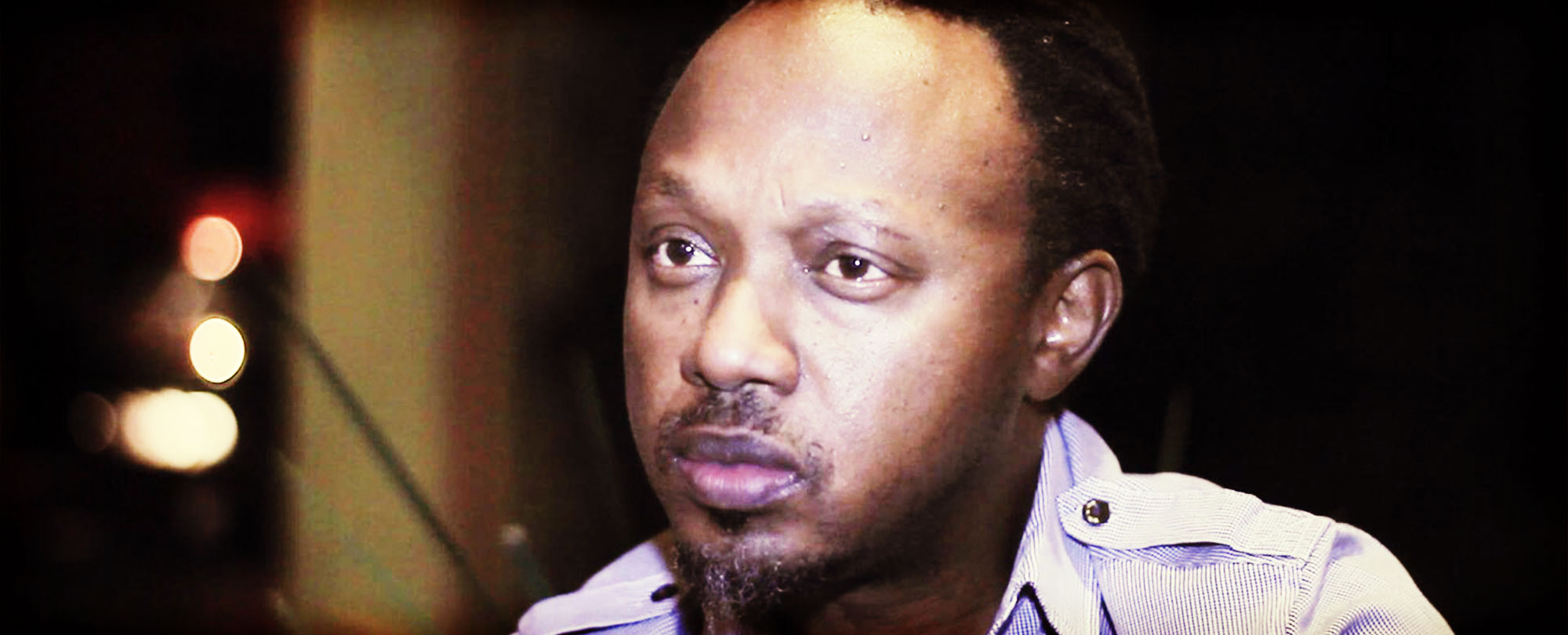‘I didn’t choose traditional music, I chose music. But in tradition, I find my roots and I wouldn’t be able to do anything without that.’ Mighty Popo is both a well-known artist and director of Rwanda’s first public music school.
While we were talking about Rwanda’s creative industry one beautiful evening in Kigali, he told me about the urgent need to rehabilitate the country’s traditional music to make it cool in order to attract young people.
Mighty Popo believes it is necessary for artists to develop a thorough understanding of music, including music from abroad and different genres.
‘Rwandan artists need to understand the evolution of other music styles, how we got where we are. We need to understand jazz, gospel and of course blues. Our music is similar to blues, so we really need to understand it.’
The youth, he thinks, is really talented and striving to create.
Without that understanding, Mighty Popo admits he is concerned about the future of Rwanda’s music scene. Young people may be talented and strive to create but their energy is not being channeled in the right way.
‘Some of them see the scene more than they see the art, and that is the problem. They reproduce what they see on TV, on MTV, and they think that that is music’, he goes on. ‘There are others however who believe that they need to work hard and that it is not about stardom above all.’
Check out our interview tomorrow with musician @Kanyamuhungu on the musical awakening happening in Rwanda right now pic.twitter.com/EAVJaBhLm5
— TRUE Africa (@_TRUEAfrica) June 20, 2016
He is a strong advocate of fusing traditional and modern genres to attract wider audiences. Those who buy purely commercial music, he believes, will not buy purely traditional music and vice versa. To make a decent living while keeping both tradition and culture alive, it is crucial to find the right balance.
This, among other things, is what he teaches at the Nyundo Art and Music School, the country’s first public music school which he founded. In fact, his biggest wish is to professionalise what he refers to as the art of music.
‘Rwandans cannot live without music’.
Today, the school is in its third year, offering three-year long professional music programmes. The first batch will graduate in October this year. Students learn the basics – what a good instrument is and how to maintain it – but also more technical skills like music production. A lot of singing is also part of the training.
He is trying to see how best to craft a Rwandese musical identity and what kind of magic can come out of the school.
And some of the results have been surprising. In September 2015, a group of Rwandan students travelled to Canada for a three-week-long music workshop programme at Selkirk College in British Columbia. It was an eyeopening experience to learn how music was done elsewhere. Their performance was so impressive that in March this year, the school sent four Canadian students to Rwanda to learn about music performance in Nyundo for three weeks. More exchanges will be taking place in the coming months. And the Canadian singer Kiesza is recording a song with a Nyundo student this week.
Students at Nyundo Art and Music school in Rwanda are weaving traditional music with sounds of today #music #singing pic.twitter.com/VDnWUbpmbO
— TRUE Africa (@_TRUEAfrica) June 21, 2016
‘Rwandans cannot live without music’, Mighty Popo says. ‘Young people have fun with it, and the impact is great. Music has lessons to teach, messages to spread, it makes you want to debate, like on the radio for example. Music brings a lot.’
The economic impact of music in Rwanda is not yet noticeable.
At the moment, the economic impact of music in Rwanda is not yet noticeable on a large scale. But the visionary Mighty Popo is working hard to bring about a nationwide development in the years to come. At the Nyundo Art and Music school, teaching revolves around how to make good music, how to help others make good music but also crucially how to make business out of music.
